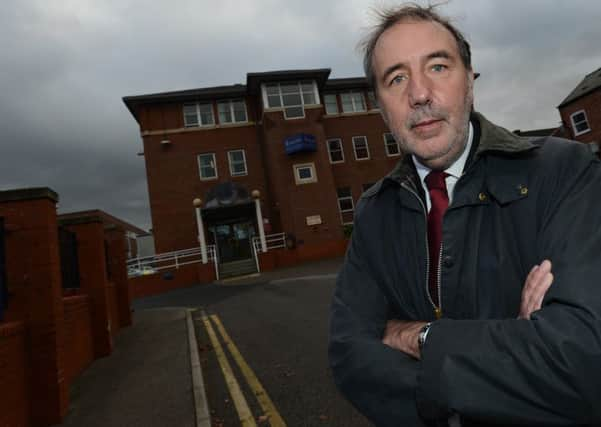Teamwork vital so traveling criminals don’t slip the net


In Nottinghamshire, cross-border crime is a persistent problem. Intelligence locally and nationally shows us that criminals still pursue offending opportunities on the rural borders of various counties, driven by a perception that these isolated areas will not be subject to the same level of proactive policing as their more urban counterparts.
The only solution to changing this perception is to increase our success in disrupting cross-border criminal activity and reprimanding those involved. How do we do this when our resources are already stretched? The answer lies in combining our efforts with neighbouring colleagues, sharing intelligence and working closely on joint operations to ensure travelling criminals are no longer able to slip through the net.
Advertisement
Hide AdAdvertisement
Hide AdTechnology has a significant role to play in cross-border crime detection, with resources such as automatic number plate recognition (ANPR) cameras able to detect the roaming activities of organised crime gangs. More important than the technology itself is how we use and share this information with our colleagues to enhance their own crime-fighting efforts as well as our own. We need to ask ourselves whether we have the systems in place to promote this two-way conversation and exchange intelligence simply and securely.
Police forces, including Nottinghamshire, already work together on joint intelligence-led operations but how can we take this further and increase our capacity and resilience to tackle cross-border crime on a day-to-day basis – not just on special occasions?
Our regional work with the East Midlands Special Operations Unit (EMSOU), incorporating Derbyshire and other East Midlands forces, is an example of the strength that can be achieved by identifying common goals with partners.
The government has been quite keen to push the localism agenda, which started to some extent with the arrival of directly-elected police and crime commissioners.
Advertisement
Hide AdAdvertisement
Hide AdIt’s a positive and constructive vision but how can it be practically achieved? Public sector agencies are already working in unison and police forces and public sector partners are also working together.
The endless partnerships and multi-layered collaborations will be complicated further by the potential emergence of an emergency service collaboration, announced by the Government recently which could see responsibility for fire and rescue services transferred to PCCs. I’m all in favour of strong, local accountability but worry that our county is at risk of becoming a patchwork quilt of relationships that makes any kind of governance complicated and messy. What we need is a clear framework in place to guide us forward. I’m very much in support of joint accountability but it needs to work seamlessly for the public.